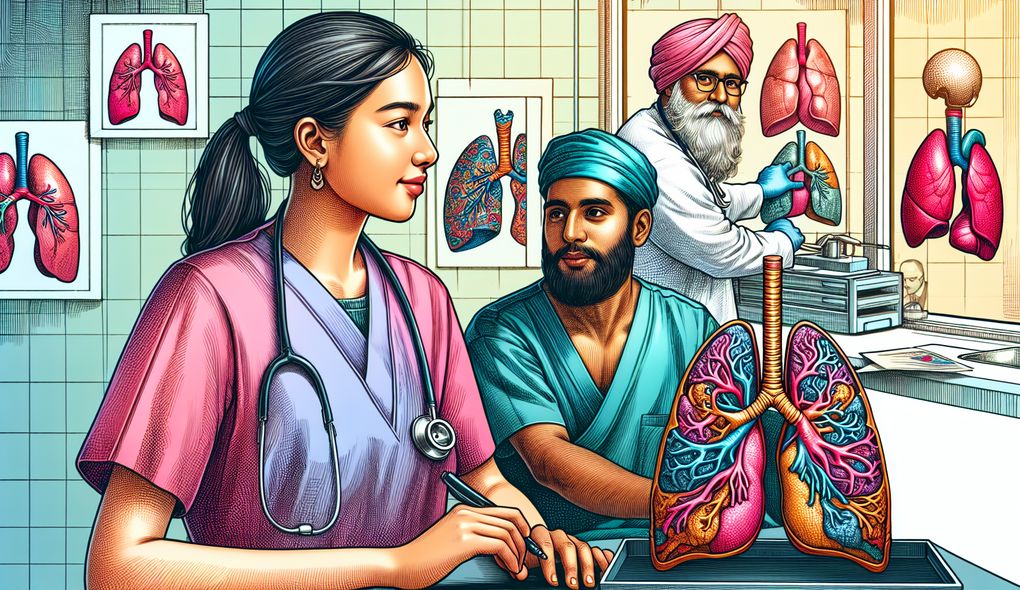How do you handle stressful situations and maintain your composure?
SENIOR LEVEL

Sample answer to the question:
When faced with stressful situations, I stay calm and composed by utilizing several techniques. First, I take deep breaths to help regulate my heart rate and bring my focus back to the present moment. I also prioritize tasks and create a step-by-step plan to address the situation, which helps me feel more in control. Additionally, I find it helpful to seek support from my colleagues or supervisor, as discussing the situation and getting different perspectives can provide valuable insights. Finally, I make sure to take breaks when needed and engage in activities that help me relax and recharge, such as going for a walk or practicing mindfulness.
Here is a more solid answer:
In my role as a Senior Pulmonary Nurse Practitioner, I frequently encounter stressful situations. One example that stands out is when I had to manage a patient experiencing a severe exacerbation of COPD. Despite the urgency of the situation, I remained calm and composed by relying on my extensive knowledge of pulmonary diseases and treatments. I immediately initiated appropriate interventions, including administering bronchodilators, oxygen therapy, and arranging for additional diagnostic tests. I also communicated effectively with the patient and their family, providing clear explanations and reassurance. By staying organized and focused, I prioritized the necessary tasks and collaborated with other healthcare professionals to optimize the patient's care. This patient eventually stabilized, and their condition improved. Reflecting on this experience, I became even more confident in my ability to handle stressful situations and maintain composure.
Why is this a more solid answer?
The solid answer goes beyond the basic response by providing a specific example from the candidate's past experience in a healthcare setting. It demonstrates their ability to apply their knowledge and clinical skills during a high-pressure situation. However, it could be further improved by elaborating on additional techniques or strategies the candidate uses to manage stress.
An example of a exceptional answer:
In my 5+ years as a Senior Pulmonary Nurse Practitioner, I have encountered numerous stressful situations. One notable example was when I single-handedly managed a code blue situation in the intensive care unit. A patient suddenly went into cardiac arrest, requiring immediate resuscitation efforts. Despite the intense pressure and time constraints, I maintained my composure by relying on my strong clinical skills and critical thinking abilities. I led the code team, assigning roles and effectively coordinating everyone's efforts. Through efficient communication and clear delegation, we successfully performed CPR, administered medications, and utilized advanced life support techniques. Additionally, I engaged with the patient's family, providing updates and emotional support during this distressing event. The patient's pulse returned, and they were stabilized, ultimately making a full recovery. This experience taught me the importance of remaining calm, focused, and confident in my abilities, even in the most challenging and stressful situations.
Why is this an exceptional answer?
The exceptional answer goes above and beyond by providing an extremely detailed and impactful example of the candidate's ability to handle a highly stressful situation. It showcases their leadership skills, clinical expertise, and ability to effectively communicate and collaborate with a multidisciplinary team. The candidate's response demonstrates their competence in crisis management and their commitment to patient care. The addition of personal growth and reflection further enhances the response.
How to prepare for this question:
- Familiarize yourself with stress management techniques, such as deep breathing exercises and mindfulness practices.
- Reflect on past experiences where you successfully handled stressful situations and maintained composure. Identify the strategies or approaches that worked well for you.
- Research common high-pressure scenarios in the healthcare field, such as code blue situations, and familiarize yourself with the appropriate protocols and interventions.
- Practice effective communication and teamwork skills, as these will be crucial in maintaining composure during stressful situations.
- Consider seeking mentorship or guidance from experienced healthcare professionals who have dealt with similar situations. They can provide valuable insights and advice.
What are interviewers evaluating with this question?
- Stress management
- Emotional regulation
- Crisis management

